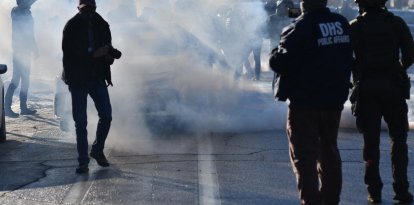Justice Thomas not longer listed as GWU professor after Roe Blacklash
A group of students sent a letter to GWU demanding that it fire Clarence Thomas, following the ruling that ended Roe vs. Wade.

Los miembros del Tribunal Supremo de los Estados Unidos. Foto: Cordonpress
Justice Clarence Thomas will not be a professor in the George Washington University Law Department. The judge has informed the institution that he is forced to resign from his teaching position because of the campaign against him, after having been one of the five Supreme Court judges who signed the ruling Dobbs vs. Jackson. That ruling marked the end of Roe vs. Wade, which recognized abortion as a right.
According to reports The GW Hatchet, Professor Gregory Maggs has sent an e-mail to his students informing them that the constitutional law seminar he was co-leading with Clarence Thomas will not feature the Supreme Court justice. Both jurists had led this seminar continuously since 2011.
The e-mail sent by Professor Maggs states, "I am writing to you, unfortunately, with sad news: Justice Thomas has informed me that he will not be available to teach the seminar this fall." He adds, "I know this is disappointing. I am very sorry." Maggs specifies that the seminar "has not been cancelled" and that he will be the only instructor. For those who are still interested in being part of it, he says that "we will do the best we can in this new situation". For his part, University spokesman Tim Pierce has not clarified whether the decision to leave GWU is temporary or permanent.
Harassment campaign
This decision comes after a group of students started a harassment campaign against the judge and against the University after the Dobbs vs. Wade, signed by Clarence Thomas and the judges Brett Kavanaugh, Amy Coney Barrett, Neil Gorsuch and Samuel Alito. It was Alito who wrote the sentence, but part of the public opinion reacted against Thomas. The jurist is one of the judges who most base his decisions on a strict interpretation of what the Constitution says.
The students wrote a letter to the University demanding the dismissal of Professor Thomas. The letter accused Thomas of "lack of humanity." And he justifies the attack on academic freedom with these words, "There is a big difference between a professor's freedom of speech and a Supreme Court justice saying it should be legal to take away queer students' not only their speech, but even to allow their existence to be criminalized," which is how the students interpret Clarence Thomas' ideas.
























